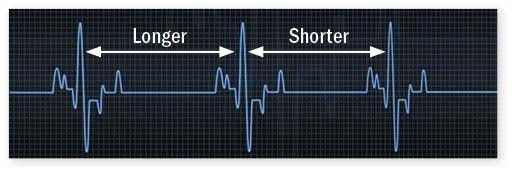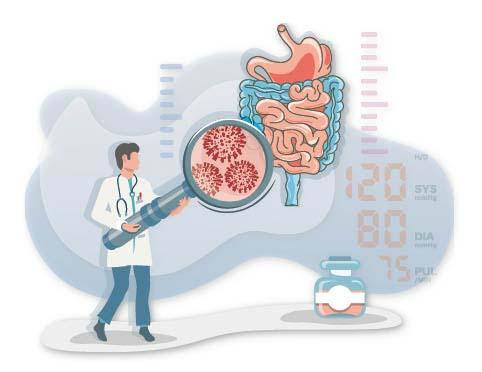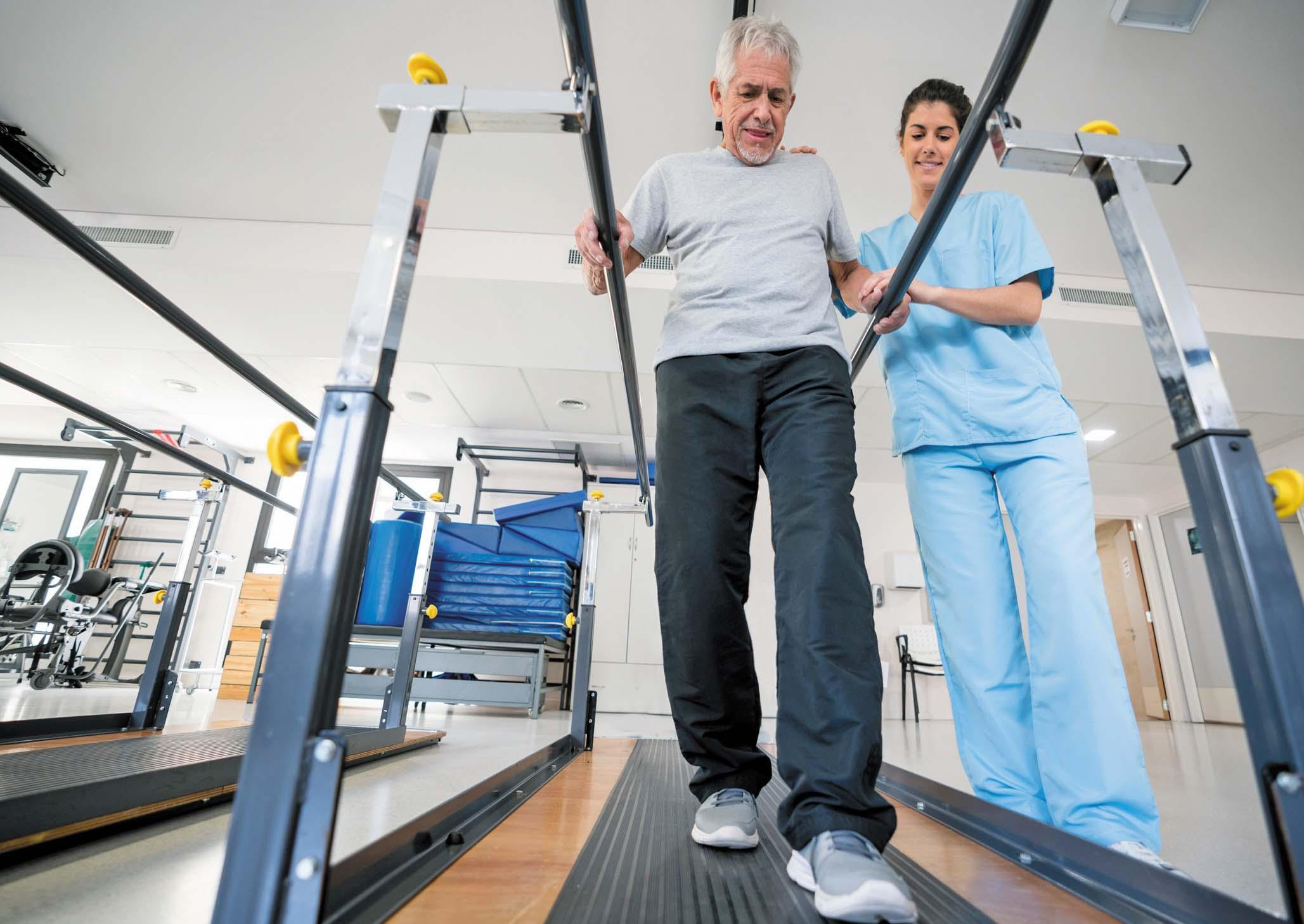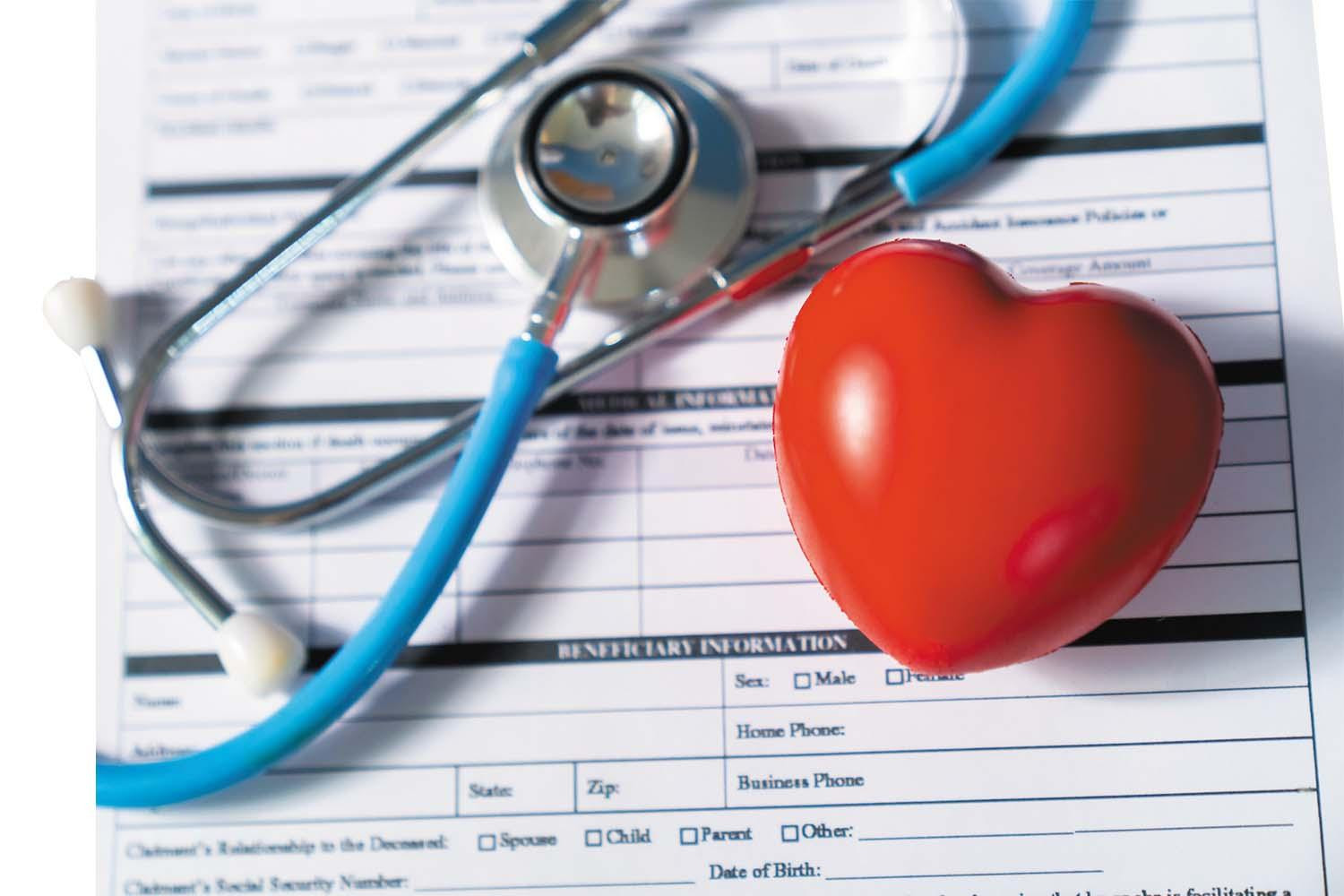
New thinking about plaque in arteries that feed the brain

Want to prevent shifting teeth? Maybe you need retainers

New evidence that polyphenol-rich foods help the heart

What you need to know about the new dietary guidelines

Food that’s healthier for people and planet can be cheaper, too

What are somatic workouts?

How to curb your stress eating

8 simple ways to reduce ultra-processed foods in your diet

How to spot Parkinson’s disease symptoms

Heart failure symptoms in women: How they’re different
Heart Health Archive
Articles
How relevant is heart rate variability?
Heart rate variability (HRV) is a measure of the tiny fluctuations in timing from one heartbeat to the next. Higher values are linked to better fitness levels and stress resilience.
The hidden heart danger of insufficient sleep
Insufficient sleep triggers a long list of physiological and hormonal changes that contribute to heart disease. For example, a lack of sleep can cause increases in blood pressure, blood sugar, inflammation, and weight. Doctors recommend getting at least seven hours of uninterrupted sleep per night. Strategies that promote better sleep include going to bed and waking up at the same time every day, creating a healthy sleep environment, and turning off electronics an hour before bedtime.
Ultra-processed foods linked to plaque buildup in neck arteries
A diet high in ultra-processed foods is linked to higher burden of fatty plaque in the carotid arteries, according to a 2025 study.
How a healthy gut benefits your blood pressure
A diet low in sodium and rich in plant-based foods promotes a diverse, balanced population of gut microbes, which may help people maintain a healthy blood pressure. A salty diet increases the prevalence of bad microbes and reduces the number of beneficial microbes. When bad microbes accumulate in the gut, they form breakdown products and toxins that promote inflammation. Beneficial microbes feed on fiber, which is why a diet that provides a mix of healthy fiber from plant-based foods helps. These microbes produce short-chain fatty acids, which interact with specific receptors on cells that help regulate blood pressure.
A new risk calculator estimates your heart’s age
A free online tool that estimates your heart’s age suggests that most adults have a heart that is older than their chronological age, according to a 2025 study.
A cold drink may trigger an episode of atrial fibrillation
For some people with atrial fibrillation, cold drinks and foods can trigger a bout of the rapid, irregular heartbeat that characterizes the disorder. Avoiding those triggers nearly always prevents this phenomenon, dubbed “cold drink heart.”
Cardiac rehab appears to help people with atrial fibrillation
A 2025 analysis of randomized trials found that cardiac rehab—a personalized program of supervised exercise and healthy lifestyle coaching—can also help people with atrial fibrillation, an irregular heartbeat that can cause stroke and heart failure.
The future of blood pressure monitoring: Cuffless devices
Many devices that measure blood pressure without an inflatable arm cuff are in development, including a wristband recently cleared by the FDA for over-the-counter sale. It relies on a light-based sensor to detect changes in the amount of blood flowing through the vessels of the inner wrist, a technique known as photoplethysmography. But the devices have to be periodically calibrated, and as yet, there are no standards to validate the accuracy of cuffless devices.
Alcohol and heart health: A complex relationship
The association between alcohol and cardiovascular disease is both complex and controversial. There’s no evidence of an increased risk for the most common forms of heart disease in people who stay within the limits for moderate drinking. Whether light to moderate drinking can lower a person’s risk is impossible to answer with currently available evidence. But there is clear, consistent evidence that heavier drinking—an average of three or more drinks per day—is linked to worse outcomes for every type of heart disease.
The heart attack and stroke emergency playbook
Everyone should learn what to do if a heart attack or stroke occurs, beyond calling 911. It helps to become familiar with heart attack and stroke symptoms, so they can be recognized. It’s also important to speak with one’s own doctor in advance, to find out if he or she advises taking an aspirin in one of those emergencies. Other precautions include keeping emergency contact and medication lists updated and handy, and talking about emergency plans with family and friends, especially one’s health care proxy.

New thinking about plaque in arteries that feed the brain

Want to prevent shifting teeth? Maybe you need retainers

New evidence that polyphenol-rich foods help the heart

What you need to know about the new dietary guidelines

Food that’s healthier for people and planet can be cheaper, too

What are somatic workouts?

How to curb your stress eating

8 simple ways to reduce ultra-processed foods in your diet

How to spot Parkinson’s disease symptoms

Heart failure symptoms in women: How they’re different
Free Healthbeat Signup
Get the latest in health news delivered to your inbox!
Sign Up











